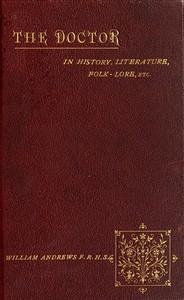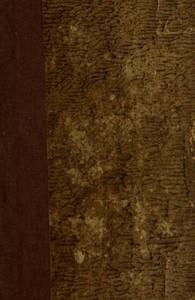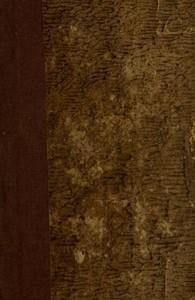|
|
Read this ebook for free! No credit card needed, absolutely nothing to pay.Words: 308570 in 110 pages
This is an ebook sharing website. You can read the uploaded ebooks for free here. No credit cards needed, nothing to pay. If you want to own a digital copy of the ebook, or want to read offline with your favorite ebook-reader, then you can choose to buy and download the ebook.

: The Doctor in History Literature Folk-Lore Etc. by Andrews William Editor - Physicians; Physicians in literature; Literature and medicine@FreeBooksWed 07 Jun, 2023 VISITING PATIENTS 22 THE LEE PENNY 209 INDEX 285 THE DOCTOR IN HISTORY, LITERATURE, AND FOLK-LORE. Barber-Surgeons. BY WILLIAM ANDREWS, F.R.H.S. The calling of the barber is of great antiquity. We find in the Book of the Prophet Ezekiel allusions to the Jewish custom of the barber shaving the head as a sign of mourning. In the remote past the art of surgery and the trade of barber were combined. It is clear that in all parts of the civilized world, in bygone times, the barber acted as a kind of surgeon, or to state his position more precisely, he practised phlebotomy. The edict of Tours must have given satisfaction to the barbers, and they were not slow to avail themselves of the opportunities the change afforded them. In London, and we presume in other places, the barbers advertised their blood-letting in a most objectionable manner. It was customary to put blood in their windows to attract the attention of the public. An ordinance was passed in 1307, directing the barbers to have the blood "privily carried into the Thames under pain of paying two shillings to the use of the Sheriffs." At an early period in London the barbers were banded together, and a gild was formed. In the first instance it seems that the chief object was the bringing together of the members at religious observances. They attended the funerals and obits of deceased members and their wives. Eventually it was transformed into a semi-social and religious gild, and subsequently became a trade gild. In 1308, Richard le Barber, the first master of the Barbers' Company, was sworn at the Guildhall, London. As time progressed, the London Company of Barbers increased in importance. The barber's pole, it is said, owes its origin to the barber-surgeons. Much has been written on this topic, but we believe that the following are the facts of the matter. We know that in the days of old bleeding was a frequent occurrence, and during the operation the patient used to grasp a staff, stick, or pole which the barber-surgeon kept ready for use, and round it was bound a supply of bandages for tying the arm of the patient. The pole, when not in use, was hung at the door as a sign. In course of time a painted pole was displayed instead of that used in the operation. Free books android app tbrJar TBR JAR Read Free books online gutenberg More posts by @FreeBooks
: Les Tourelles: Histoire des châteaux de France volume II by Gozlan L On - Castles France FR Histoire@FreeBooksWed 07 Jun, 2023

: Les Tourelles: Histoire des châteaux de France volume I by Gozlan L On - Castles France FR Histoire@FreeBooksWed 07 Jun, 2023
|
Terms of Use Stock Market News! © gutenberg.org.in2025 All Rights reserved.






